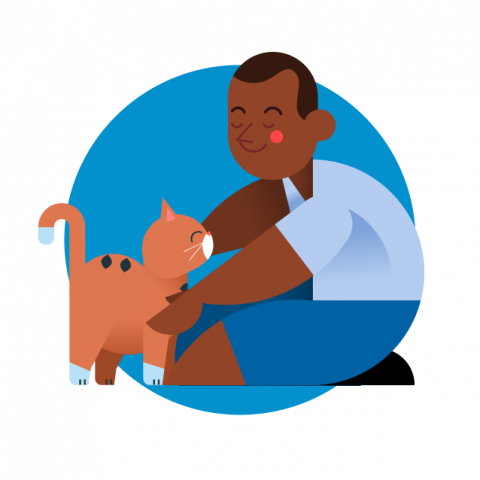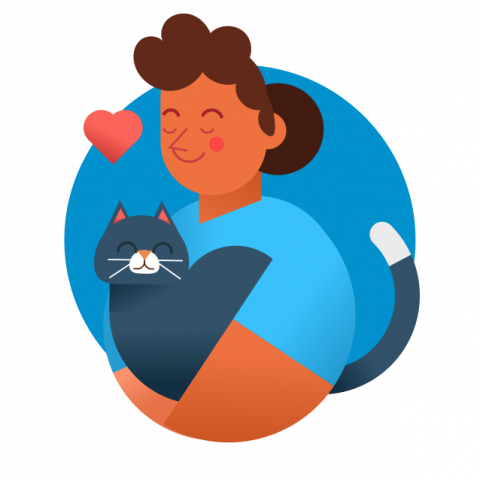What is our goal?
To always alleviate suffering and make appropriate euthanasia decisions.
Where are we now?
We are confident we are making right decisions in this area for dogs.
We have moved the dial from red/amber to amber this year, however, we are still at times unable to make the euthanasia decisions we want to for cats because of the sheer volume of unsocialised, wild and semi-wild cats coming into the shelter during kitten seasons.
Perfomance highlight 2022/2023
Recent updates
This year (2022/2023) to date, the number of animals coming through our shelters is up by 30% on last year. Many of these are undesexed cats and kittens.
In January, The Lost Dogs' Home held Australia's first ever 24-hour desexing marathon in an attempt to address the issue and educate the community on their vital role in the battle to reduce the numbers of unwanted cats and kittens living wild on our streets, at risk of injury or life-threatening health issues, as well as being able to get lost cats and kittens quickly back into their homes.
The event was highly successful in desexing hundreds of both owned and shelter cats and kittens while securing extensive media coverage across print, radio and television on the importance of desexing and microchipping.
For more detail on the issue, read The Age coverage here.
Listen to Dr Jess our Head of Veterinary Services talking to the ABC on the success and purpose of the event.
Our vets make sure no animal in our care is ever left to suffer.
If the health condition is chronic and pain cannot be alleviated or quality of life is acutely impeded, it is humane to relieve an animals’ suffering with compassionate euthanasia. Animals in our care are treated with kindness and respect and are never alone when the moment to say goodbye approaches.
Our qualified behaviourists and vet behaviourists have a toolkit of prescribed medications, behaviour training and modification and coping mechanisms to give every animal the best possible chance of adoption.
Our foster families and rescue partners also give us the opportunity to be able to work over much longer periods of time with animals requiring extensive behaviour interventions.
Our behaviourists approach every animal with adoption as the end goal. However, the safety of the community and their animals are also our responsibility, and we must also consider the quality of life for animals in our care who have experienced serious trauma. These animals can be irretrievably shut down, and express severe symptoms of untreatable anxiety such as self-mutilation.

Where do we need to be?
The community trusting that we are making the right decisions and for the right reasons.
Moving animals out of the shelter environment as fast as possible to achieve the best experience for them. This is a fine balance between achieving best outcomes for the animal and managing risk

How will we advance?
- Work through and address community misconceptions that every animal can be saved.
- Challenge and correct false assumptions such as we euthanise dogs simply because they are anxious.
- Deliver on low-cost microchipping and de-sexing initiatives and increase education on this issue.
- Increase collaboration and alignment of strategies with other shelter partners, RSPCA Victoria, Animal Aid, and others.
- Consider partnering with councils on trap-neuter-release programs if/when they become legal.




